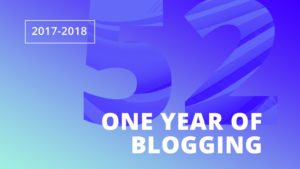What is Performance?
The concept of “performance” has become a big business.
We’re talking six-figure self help book deals, goal-setting workshops, seminar gurus like Tony Robbins, etc. all focused on performance. Improving performance is so critical in the business world that leaders spend countless hours each week (equating to billions of dollars) establishing objectives and providing feedback to better manage their team’s performance.
With so much talk about performance, I feel we’re losing track of what it even means…
Do You Solve Problems or Create Them?
If you ask me, I view performance in terms of the value you provide to those around you. That’s ultimately what goals measure anyway… The quantity and timeliness of the value you create.
To get a sense of how well you stack up, I encourage you to reframe the concept of performance and ask yourself the following question:
Are you a problem solver or a problem creator?
Poor performers create more problems than they solve. It’s a simple as that.
The people I surround myself with in a professional setting and hire over and over again to work for me are master problem solvers. They make my problems go away.
Top performers ask insightful questions to ensure they do the best work possible, have the resourcefulness to figure everything else out on their own, and don’t bog down the people around them.
I strive to do the exact same thing with my clients.
Problem Creation Beyond the Workplace
Interestingly, the correlation between problem solving / creation doesn’t just apply to the workplace. It also applies to family, sports, relationships, friends, and more.
A few examples:
1) Corporate Goals — Let’s say one of your quarterly objectives is to implement a new CRM software for your company. On paper, you achieved this goal. It’s the end of the quarter, and the shiny new software is installed.
But what did it take to get there? Did you repeatedly waste your co-workers’ time with questions you could’ve figured out yourself? Did you have to ask for a budget increase because you couldn’t negotiate the deal properly?
When you dig through the steps it took to get there, you potentially created more problems than you solved. Game over.
2) Sports Teams — Ask any coach, and they will tell you they prefer an unwavering, hardworking teammate over a show-off any day of the week.
Over time, the player who scores just a few baskets per game but doesn’t create problems will tip the scales and overshadow the player who scores 40 points but shows up late to practice, second guesses the coach’s plays, and berates teammates when they make a mistake.
3) Friend Gatherings — Why do we build friendships? It largely has to do with providing support, having fun, and making us laugh. That is the value friends provide.
However, we all know the friends that can be a ton of fun but bring their personal baggage to gatherings. They breed drama and pick petty fights with people in the group.
As I’ve reinforced throughout the article, when the problems your friend creates outweigh the value the provide, you stop considering them a close friend.
Becoming a Problem Solver
Creating problems is easy. All of us are already expert problem creators. After all, it hardly takes any effort to just turn your challenge into someone else’s problem.
Solving problems? Now that’s the hard part…
Solving problems requires foresight, resourcefulness, perseverance, commitment, and ingenuity. Solving problems requires work.
Put in the work to make other people’s problems go away, and rest assured you will be rewarded handsomely.
See you next Sunday at 8:30 pm. 🙂












Thank you very much for sharing, I learned a lot from your article. Very cool. Thanks. nimabi
Your point of view caught my eye and was very interesting. Thanks. I have a question for you. https://www.binance.com/ur/join?ref=V2H9AFPY
Your article helped me a lot, is there any more related content? Thanks! https://www.binance.com/ru/join?ref=PORL8W0Z
Can you be more specific about the content of your article? After reading it, I still have some doubts. Hope you can help me. https://www.binance.info/join?ref=RQUR4BEO
I don’t think the title of your article matches the content lol. Just kidding, mainly because I had some doubts after reading the article.
Can you be more specific about the content of your article? After reading it, I still have some doubts. Hope you can help me.
Your article helped me a lot, is there any more related content? Thanks!